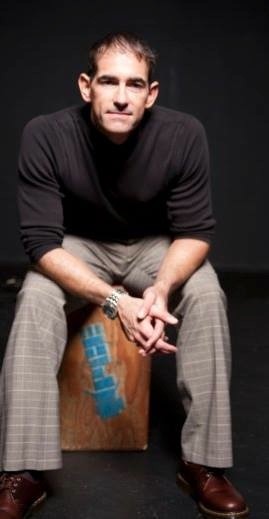Every writer has a desire to learn the craft, screenwriters more so. However, their journey is complicated by the essence of their craft. Movies are visual anomalies and it’s a screenwriter’s job to break them down into its subparts in words.
- Characters
- Setting
- Conflict
- Plot
- Theme
In a clear and visual way that creates a complete story on the screen. The glue that holds it all together is the center subpart: conflict. Author, speaker and screenwriter Donald Miller notes,
“Far from being a bad thing, conflict in story is a necessity.”
When I was in college and wanted to be a writer, my main problem was I had no ideas for a story, just knowledge about how to write it. Then, the unthinkable happened, always in a severe car accident that left me partially paralyzed.
If you follow the disability column here on Almost an Author, you’ve read about my struggles of writing with a disability. My disability has become the conflict in my own story.
My own body has worked against me for over 20 years now. What I learned so far is that my conflict, my disability, isn’t actually against me—the friction is actually helping me grow as a person and writer.
As hard as it is for some to accept in this day and age, the truth is friction fuels life is as much as conflict fuels our stories in our writing. Miller continues,
“There is no character development without conflict. So when we choose our ambitions, they should be difficult and we should anticipate and even welcome conflict.”
Conflict?
To better understand conflict, let’s look at the definition: A battle, or struggle, especially a prolonged struggle; strife; antagonism or opposition, friction. In our stories it’s our protagonist’s opposition. This opposition or complement may come in one of various forms.
- External – The most obvious and visual to an audience, this form of conflict is a physical struggle against the protagonist.
- Internal – Not always obvious, but the most important type of conflict because it often reveals our protagonist’s goal and flaws, it also reveals our character growth throughout our story. In film this type of conflict can be the hardest to show instead of tell.
- Interactional – This type of conflict is more of a relational conflict, how our protagonist deals with other personalities (both different and similar).
- Environmental – While similar to external, this conflict is more of a location or setting-fueled conflict, think a “fish out of water” story.
Environmental conflict is everywhere in life, we see it in Mother Nature; we experience it when we travel and even within our own bodies when they don’t agree with Mother Nature. As fall approaches, my allergies are already beginning to act up. Unfortunately I can’t even see the little particles that do war with my body—but somewhere there are hidden triggers waiting to set me off.
Background?
Even if conflict isn’t obvious in our stories (which it should be), there should always be something motivating our protagonist to grow, be better, do better or get stronger. Conflict is often personified in the form of the antagonist in our story, screenplay or novel.
Award-winning author and speaker Steven James once shared,
“All stories involve some sort of pursuit, but how many chapters or acts or pages that takes depends more on the obstacles that the characters encounter and their subsequent choices.”[1]
In some of the best movies, conflict is multilayered and fueled by each of the conflict types I mentioned earlier and they shape each of the sub parts I mentioned at the beginning. Here are a few examples that come to mind.
- The Breakfast Club
- Forrest Gump
- Slum Dog Millionaire
- Rocky
The Rocky franchise is a classic example. We see our hero struggle with his body, his environment, his ego and his relationship with his wife; each causing Balboa to grow through friction.
[1] http://www.jungleredwriters.com/2017/11/steven-james-consummate-story-blender.html
Martin Johnson survived a severe car accident with a (T.B.I.) Truamatic brain injury which left him legally blind and partially paralyzed on the left side. He is an award-winning Christian screenwriter who has recently finished his first Christian nonfiction book. Martin has spent the last nine years volunteering as an ambassador and promoter for Promise Keepers ministries. While speaking to local men’s ministries he shares his testimony. He explains The Jesus Paradigm and how following Jesus changes what matters most in our lives. Martin lives in a Georgia and connects with readers at Spiritual Perspectives of Da Single Guy and on Twitter at mtjohnson51.



 We love helping your growing in your writing career.
We love helping your growing in your writing career.

No Comments